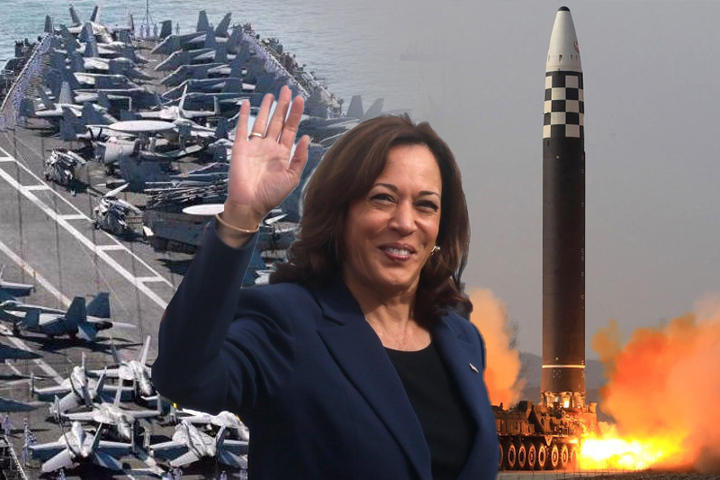
North Korea fires ballistic missiles after denouncing UN, US drills
Thursday, October 6, North Korea fired two short-range ballistic missiles into the sea in the direction of Japan, following the return of a US aircraft carrier to the region and a United Nations Security Council meeting in response to the North’s previous launches.
The missile launch was the first since North Korea flew an intermediate-range ballistic missile (IRBM) over Japan on Tuesday, which provoked joint South Korean and U.S. missile drills in which one weapon exploded.
South Korea’s Joint Chiefs of Staff and the Japanese government reported the launch.
Prime Minister of Japan Fumio Kishida told reporters, “This is the sixth time in such a short period, merely counting the incidents since September’s end.”
The launch occurred roughly an hour after North Korea condemned the United States for discussing Pyongyang’s “just counteraction measures of the Korean People’s Army on south Korea-US joint drills” with the United Nations Security Council, suggesting that its missile tests are a response to the allied military moves.
North Korea’s foreign ministry issued a statement condemning the relocation of a US aircraft carrier off the Korean peninsula, claiming it posed a grave threat to the stability of the region.
In reaction to North Korea’s IRBM launch over Japan, the USS Ronald Reagan and its accompanying strike group were redeployed without warning.
A State Department official stated that the United States criticized Thursday’s launch, calling it a breach of United Nations Security Council resolutions and a threat to regional neighbors and the international community.
However, the official said that Washington is committed to a diplomatic strategy and urged the North to engage in conversation.
Wednesday, the United States accused China and Russia of aiding North Korean leader Kim Jong Un by obstructing efforts to enhance United Nations Security Council sanctions against Pyongyang for its nuclear weapons and ballistic missile programs.
President Yoon Suk-yeol of South Korea, who is scheduled to speak with Japanese Prime Minister Yoshihide Kishida via telephone on Thursday, assured reporters that his nation will maintain its security through its alliance with the United States and cooperation with Japan.
He stated that the US carrier had entered South Korean waters late Wednesday night.
Keep Reading
The national security council of Yoon warned that North Korea would be met with a robust international response in response to the tests.
Japanese Defense Minister Yasukazu Hamada stated that Tokyo submitted a “vehement protest” with North Korea over the launches on Thursday via delegations in Beijing.
The first missile launched on Thursday had an estimated height of 100 kilometers (62.42 miles) and a range of 350 kilometers, while the second had an estimated altitude of 50 kilometers (31.07 miles) and a range of 800 kilometers, with an unusual trajectory, he said.
Numerous of North Korea’s most recent short-range ballistic missiles (SRBMs) are designed to fly on a lower, depressed trajectory and potentially maneuver, making their detection and interception more difficult.
“Since the beginning of this year, North Korea has continuously and unilaterally upped its provocations,” Hamada told reporters.
The JCS of South Korea stated that the missiles were launched from an area close to Pyongyang, the capital of North Korea.
This year, North Korea has launched approximately 40 missiles. Its record schedule began with the launch of a new “hypersonic missile” in January, and continued with long-range cruise missiles; SRBMs fired from rail carriages, airports, and a submarine; its first intercontinental ballistic missile (ICBM) launches since 2017; and the IRBM shot over Japan.
It also appears prepared to undertake its first nuclear test since 2017 according to Seoul and Washington officials.
The United States and its allies have increased military displays in the region, but it looks unlikely that the United Nations Security Council, which has already passed resolutions prohibiting North Korea’s missile and nuclear programs, will impose additional international penalties.
Geng Shuang, China’s deputy UN ambassador, stated that the Security Council must play a constructive role rather than depending simply on loud language and pressure.
In May, China and Russia officially separated the Security Council for the first time since it began punishing Pyongyang with sanctions in 2006. They rejected a US-led effort to impose more UN sanctions on North Korea over its resumed ballistic missile tests.




